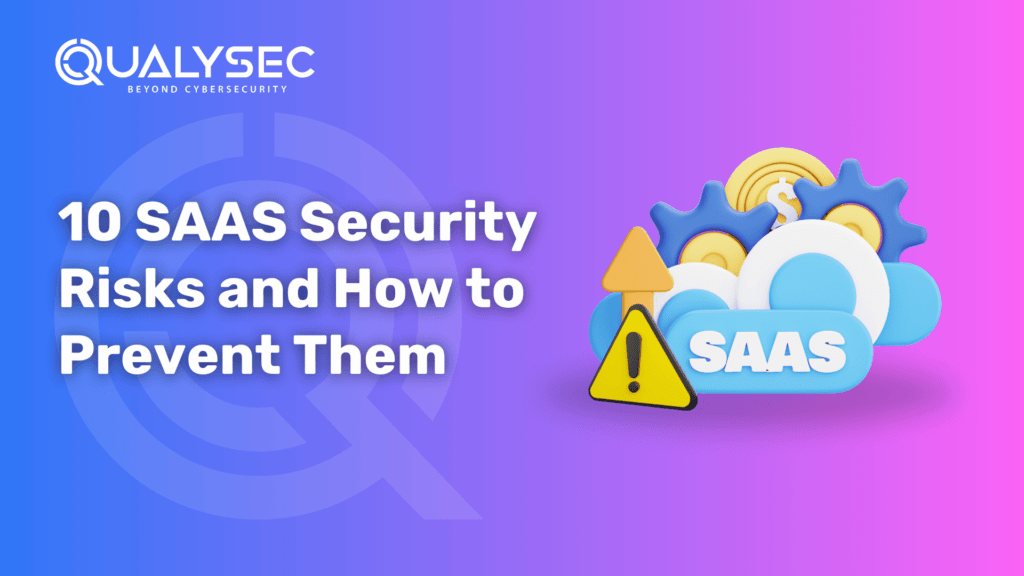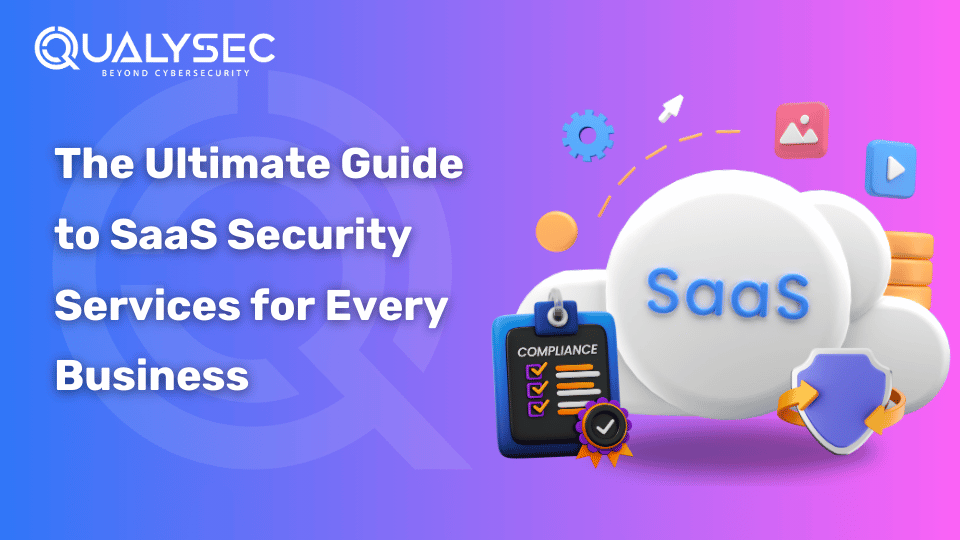10 SaaS Security Risks and How to Prevent Them
Scalability, flexibility, and cost-effectiveness have posed SaaS in front of the business operation face. It allows organizations to deploy applications efficiently, streamlines workflows, and enhances collaboration without the management of complex IT infrastructure. However, there are a set of SaaS security risks like data breaches, insecure APIs, compliance issues, and insider threats exposing sensitive data to cybercriminals. Ignorance of these risks is vital for maintaining security. All precautionary measures like encryption, MFA, security audit regularly, compliance, and risk minimization. IAM shall be done strictly. All third-party integration needs to be monitored. Strong plans need to formulate a response to the incident of cybersecurity. Since human error has remained one of the primary reasons for breaching attacks in many incidents. Employees need to be equipped with cyber security awareness. This protects the SaaS security software and makes it easier for the company to preserve the confidentiality, integrity, and availability of data using active security measures. Monitoring it incessantly, following compliance rules, and training the staff always gives a safe assurance about a guaranteed SaaS environment in this digital world. 1. Data Breaches Risk: SaaS security platforms hold a lot of sensitive data, which is why cybercriminals are eyeing them as a prime target. A breach can lead to financial loss, reputational damage, and legal repercussions. For example, in 2021, a large SaaS provider suffered a breach that exposed the personal data of millions of users, resulting in costly lawsuits and regulatory fines. It may also lead to loss of customer trust, thereby reducing sales and long-term brand damage. Prevention 2. Insecure APIs Risk: Most SaaS applications are developed to communicate using APIs. A poorly protected API can serve as the entrance through which an attacker will enter your application. In 2018, one of the most famous fitness tracking apps exposed thousands of users’ private data due to an insecure API. These people could track where other people live and other private information. Prevention 3. Non-compliance Risk Risk Security SaaS providers haven’t been putting the industry’s regulations, such as GDPR, HIPAA, or SOC 2, so they are faced with legal and monetary penalties. If companies are found not to have followed the laws, they would be fined, for example, Google was fined $57 million by GDPR. However, non-adherence may even result in accessing data restrictions and loss of business opportunities. Prevention 4. Insider Threats Risk: Employees or third-party vendors who have access to the SaaS based platform can sometimes do it unwittingly or for other malicious purposes. In 2019, there was an incident at a huge tech firm whose employee who was upset made available some very critical company information which led to a loss in reputation and money. Prevention: Latest Penetration Testing Report Download 5. Weak Identity and Access Management Risk: Bad IAM practices open the gateway for unauthorized access and theft of credentials; it is surprising to note that a 2020 report accounted for 61% of breaches due to stolen credentials. Prevention Strong Password Policy: Difficult and unique passwords; in addition, passwords are changed from time to time. Single Sign-On (SSO): Reduction of password fatigue and reuse through secure authentication of several applications. Access Logging: Access activities are tracked with detailed logs to detect and investigate security-related incidents. Privileged Access Management (PAM): Implementation of PAM solutions to regulate sensitive system access and restrain user-privileged activity. 6. Third-Party Dependencies Risk: Because many SaaS security companies‘ offerings are going to be reliant on third-party services with known vulnerabilities, if those same services are not security-hardened, thousands of businesses had secrets laid bare before one vulnerable vendor supply chain attack in 2020. Businesses’ third-party providers will most likely have multiple different security steps every time that they work with, and probably expose businesses completely out of one’s control. Prevention Vendor Security Assessment: Third-party security controls should be evaluated before integration to ensure they meet your organization’s standards. Security Audits: Third-party services should be reviewed periodically for compliance with your security policies and best practices. Access Control: Third-party access should be restricted to only those data and systems that need to be accessed. Third-Party Risk Management: Monitor third-party risks, vulnerabilities, and changes in the third-party security posture of third-party companies to avoid a supply chain attack. 7. Data loss and failure of backups Risks: A good backup policy is what may mean the difference between life and death for businesses against the loss of critical data resulting from accidental deletion, ransomware, or collapse of a SaaS provider. For instance, a health provider loses the records of patients due to the failure to have a proper backup policy which leads to non-compliance and loss of confidence. Besides, organizations risk experiencing serious operational disruption if there is no proper procedure for data recovery. Prevention Automated Backups: Schedule redundant backups across multiple locations to prevent data loss. Disaster Recovery Testing: Regularly test the procedures for data restoration to ensure rapid and reliable recovery in case of emergency. Retention Policies: Define clear retention and recovery policies for data to adhere to regulations and the continuity of business. Immutable Backups: Backups of data are in a way they cannot be altered or deleted, prevent ransomware attacks, and give integrity to data. 8. Poor Incident Response Plan Risk: Many organizations have not planned any incident response processes well, so the damage aggravates and costs skyrocket. In 2017, a global enterprise lost $300 million due to an unprepared incident response strategy. Without the predefined response process, businesses would not be in a position to handle the situation and attackers take advantage to their fullest extent. Prevention: Comprehensive Plan: Overall response plan to a security incident, which would ensure a very short response. Training of Employees: Organizing security incidence handling workshops and tabletop exercises to prime teams for real incidents in the field. Incident Response Simulations: Recurrent incident responses where readiness will be tested and response time improved. Integrate Threat Feeds: Utilize feeds from known threat intelligence sources to proactively identify potential attacks before they gain precedence. 9. Misconfigured






